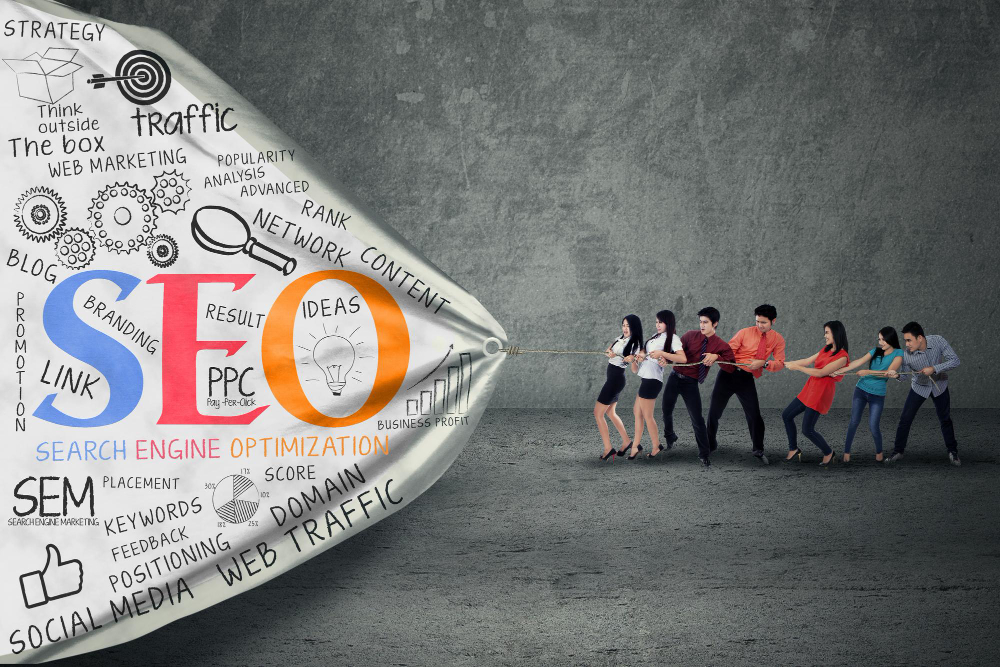The business landscape of New Zealand is characterised by the presence of Small and Medium Enterprises (SME), which in a way we can call the backbone of NZ’s economy. SMEs are a substantial proportion of businesses as they drive innovation, employment, and economic growth. With the world going digital faster than we can think, digital marketing has emerged as a pivotal tool for SMEs to crack their goals and growth. With this article, we explore the impact of digital marketing on the growth of SMEs in New Zealand and also learn some effective strategies.
Definition and Importance of SMEs in New Zealand’s Economy
SMEs constitute over 97% of all businesses in the country. SMEs in New Zealand are described as organisations that have fewer than 20 employees. These enterprises play a significant role in the country’s economic health, contributing heavily to GDP and employment. SMEs are known to be agile and adaptable due to their medium to small size hence well-suited to embrace digital marketing. Due to this very reason, they can compete effectively in both domestic and international markets.
Introduction to Digital Marketing as a Crucial Tool for SME Growth
Digital marketing, simply put, can be described as various online strategies and tactics aimed at promoting products and services through digital channels. For New Zealand’s SMEs, these digital platforms offer a cost-effective and scalable means to enhance brand visibility, reach target audiences, and drive business growth.
Understanding Digital Marketing
Definition and Components of Digital Marketing
Digital marketing involves using online platforms and tools to reach and engage customers and the target audience. Key components include:
- Social Media Marketing: Using platforms like Facebook, Instagram, and LinkedIn to connect with audiences.
- Email Marketing: Sending targeted emails to nurture customer relationships and promote products or services.
- Search Engine Optimization (SEO): Optimising website content to rank higher in search engine results.
- Content Marketing: Creating valuable and relevant content to attract and engage customers.
- Pay-Per-Click (PPC) Advertising: Running ads on platforms like Google Ads and Facebook Ads to drive traffic and conversions.
The Shift from Traditional to Digital Marketing
The shift from traditional to digital marketing is driven by the need for cost-effective, measurable, and targeted strategies that are not limited to the local region. Unlike traditional marketing, digital marketing allows SMEs to track performance in real time, adjust campaigns based on data, and achieve a higher return on investment (ROI).
The Role of Digital Marketing in SME Growth
Enhancing Brand Visibility and Reach
NZ based Digital Marketing Agency can help to enhance brand visibility and reach, enabling SMEs to connect with a wider target audience. With SEO and social media, businesses are in a better position to attract potential customers who are actively searching for their products or services.
Cost-Effectiveness Compared to Traditional Marketing
Digital marketing is cost-effective when compared to traditional marketing methods. Platforms like social media email marketing, and content marketing let SMEs reach larger audiences without paying the high cost associated with print or broadcast advertising.
Ability to Target Specific Audiences and Demographics
One of the key advantages of digital marketing is the ability to target specific audiences and demographics. SMEs can create highly targeted campaigns based on factors such as age, location, interests, and behaviour, ensuring that their marketing efforts reach the most relevant audience.
Real-Time Data and Analytics for Measuring Performance and ROI
Digital marketing provides real-time data and analytics, this is advantageous to the SMEs as they can measure the performance of their campaigns accurately. Metrics such as website traffic, conversion rates, and customer engagement provide valuable insights into the effectiveness of marketing strategies and ROI.
Key Digital Marketing Strategies for New Zealand SMEs
SEO and Local Search Optimization
SEO or Search Engine Optimization is an essential way to improve online visibility in the local regions. By optimising their websites for local search, SMEs can attract customers in their geographical area, driving foot traffic and online sales.
Social Media Marketing: Platforms, Strategies, and Benefits
Social media platforms like Facebook, Instagram, and LinkedIn have immense potential for engagement to tell the brand’s story and connect with the right audience. SMEs can create targeted ads, share engaging organic content, and interact with customers directly, building a loyal community.
Email Marketing: Building and Nurturing Customer Relationships
Email marketing remains a powerful tool for nurturing customer relationships. By sending personalised and relevant content, SMEs especially the ones in the service sector can keep their audience engaged and informed, driving repeat business and loyalty.
Content Marketing: Creating Valuable Content to Attract and Engage Customers
Content marketing involves creating and sharing valuable content that resonates with the target audience. This strategy helps SMEs establish authority, build trust, and attract organic traffic to their websites.
PPC Advertising: Google Ads, Facebook Ads, and Other Platforms
PPC (Pay-per-click) advertising offers immediate visibility and measurable results. SMEs can run targeted ads on platforms like Google Ads and Facebook Ads, driving traffic and conversions with a controlled budget.
Challenges and Solutions in Implementing Digital Marketing
Common Challenges Faced by SMEs in Adopting Digital Marketing
There are many benefits that SMEs can reap from digital marketing, but there are some challenges too, that may affect the growth. That could be limited resources, lack of expertise, and difficulty in keeping up with trends.
Solutions and Best Practices to Overcome These Challenges
For the SME to invest and get the most out of Digital Marketing, they can try to get trained, or hire experts or agencies, and utilise affordable tools and platforms. It is always wise to stay updated with the latest industry trends and keep learning to grow your business.
Importance of Continuous Learning and Staying Updated with Digital Marketing Trends
The landscape of digital marketing is constantly evolving. For SMEs, it is a must to stay informed about the latest trends and technologies to remain competitive. Continuous learning and adaptation are key to leveraging digital marketing effectively.
Future of Digital Marketing for SMEs in New Zealand
Emerging Trends and Technologies in Digital Marketing
The innovation trends that are to watch out for are artificial intelligence, voice search, and personalised marketing. SMEs need to learn and adapt these innovations to stay ahead of the curve.
Predictions for the Future Impact of Digital Marketing on SME Growth
For SMEs to grow, digital marketing holds immense potential. As technological innovations are being adapted, SMEs will have the right tools to connect with their audience, strengthen & grow their online presence and drive business growth.
Conclusion
Digital Marketing is here to stay and help every SME based in NZ to thrive. Digital marketing tools are the best ones right now to enhance brand visibility, reach targeted audiences, and provide measurable results. It offers powerful tools to navigate the challenges of the modern business landscape. As the digital world continues to evolve, SMEs must embrace digital marketing strategies to drive growth, remain competitive, and achieve long-term success.


